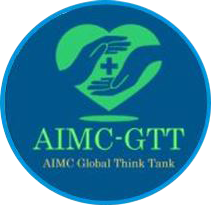Abstract
Background Ramucirumab (RAM), a monoclonal antibody for vascular endothelial growth factor 2 (VEGFR2), has been effective for advanced gastric adenocarcinoma (AC). However, little is known about the efficacy of RAM-containing chemotherapy (RAM-CTx) in gastric neuroendocrine carcinoma (G-NEC).
Methods We retrospectively analysed and compared the clinical outcomes of patients (pts) with G-NEC receiving RAM-CTx, G-NEC receiving CTx without RAM and AC receiving RAM-CTx in our hospital. G-NEC was defined by neuroendocrine carcinoma features, regardless of the proportion, based on histology and neuroendocrine markers (synaptophysin, chromogranin A or CD56). VEGFR2 expression in tumour vessels was evaluated in archival primary G-NEC tissues by immunohistochemistry using the same anti-VEGFR2 primary antibody and scoring scheme (vascular VEGFR2 H-score) as in the REGARD trial.
Results Seventeen G-NEC receiving RAM-CTx, 13 G-NEC receiving CTx without RAM and 173 AC pts receiving RAMCTx were analysed. The overall response rate (59% vs 8 % vs 28%), progression-free survival (median 7.7 vs 1.8 vs 3.3 months) and overall survival (median 16.1 vs 8.6 vs 9.6 months) were significantly better in pts with G-NEC receiving RAM-CTx than G-NEC receiving CTx without RAM or AC receiving RAM-CTx. No severe or unexpected adverse events occurred. The median vascular VEGFR2 H-score, based on available G-NEC tissues from 12 pts receiving RAM-CTx, was 220 (range 150–260), which was markedly higher than that reported on AC tissues from the REGARD trial as historical control (median 35, range
0–240).
Conclusions RAM-CTx showed a promising activity without severe or unexpected safety profile in pts with
G-NEC. This may in part be explained by higher vascular VEGFR2 expression in G-NEC tissues.
